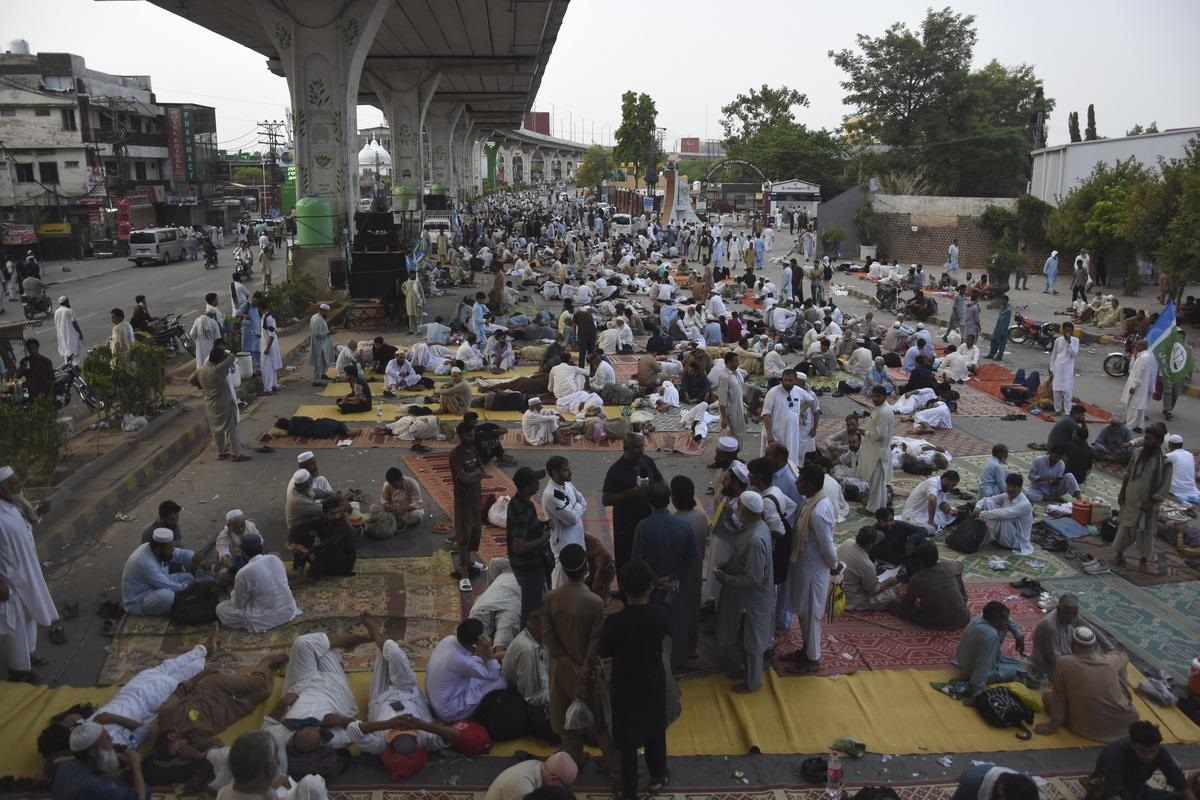RAWALPINDI: As the Jamaat-e-Islami (JI) protest against inflation and a significant increase in power tariffs entered its sixth day, the party’s Vice Emir, Liaqat Baloch, stated on Wednesday that the federal government’s technical committee “needs more time to address the protesters’ demands.”
“The government’s technical team agreed with our demands,” Baloch told journalists after the second round of talks with government negotiation committee members at the Rawalpindi commissioner’s office earlier today.
The head of the JI’s negotiation team cautioned that his party would halt negotiations if the government showed a lack of seriousness in addressing their demands, which include reviewing contracts with independent power producers (IPPs) held responsible for high power bills.
“We were informed that [Federal Information Minister] Attaullah Tarar is busy in a meeting with the prime minister, which is why he is not here today,” he added.
Baloch emphasized that the JI’s sit-in aimed to address the nation’s fundamental issues.
He added that the party had accepted the government’s invitation for dialogue and that both talks and the sit-in would continue simultaneously until their demands were met.
Baloch elaborated on the national issues, stating that the country was in a political crisis and facing terrorism, but “people don’t care about these things.”
He called on the federal government to provide relief to the masses through petroleum products and agriculture.
This development followed an announcement by the JI’s emir, Hafiz Naeemur Rehman, extending the ongoing protest on Rawalpindi’s Murree Road and organizing nationwide demonstrations to pressure the government to meet JI’s demands.
He announced a sit-in in front of the Sindh Governor House as the first phase, followed by protests in Lahore and Multan on Wednesday.
However, the sit-ins were postponed after Hamas political chief Ismail Haniyeh’s assassination in Tehran, Iran, as the party decided to offer his funeral prayers in absentia.
The JI has put forward 10 demands for ending its protest sit-in, including:
- Abolition of the Petroleum Development Levy on all petroleum products and withdrawal of the latest price increases.
- 20% reduction in prices of food commodities, electricity, and gas tariffs.
- Renegotiation of agreements with independent power producers (IPPs).
- Ending the clause of agreements with IPPs requiring payments in US dollars.
- A 50% discount for power consumers using up to 500 units.
- Reduction of taxes on the agriculture and industrial sectors and decreasing their financial burden by 50%.
- Ensuring incentives for the industrial sector, trade, and investment to provide employment to youth.
- Withdrawal of increased taxes on the salaried class and imposing taxes on the privileged class.
- Cutting non-development expenses by 35%.
- Withdrawal of all taxes on stationery and other items used in the education and training of children.
The first round of talks occurred on Sunday, with a three-member delegation including Federal Minister for Information and Broadcasting Attaullah Tarar, Amir Muqam, and Tariq Fazal Chaudhry meeting the JI negotiation committee.
Following the meeting, Tarar announced the formation of a technical committee to review the JI’s demands.
He added that the federal minister for water and power had been included in the technical team, which also comprises the Power Division secretary and representatives of the finance ministry and the Federal Board of Revenue (FBR), to review the JI’s demands.
He assured that the JI’s demands related to electricity issues would be addressed promptly.



















